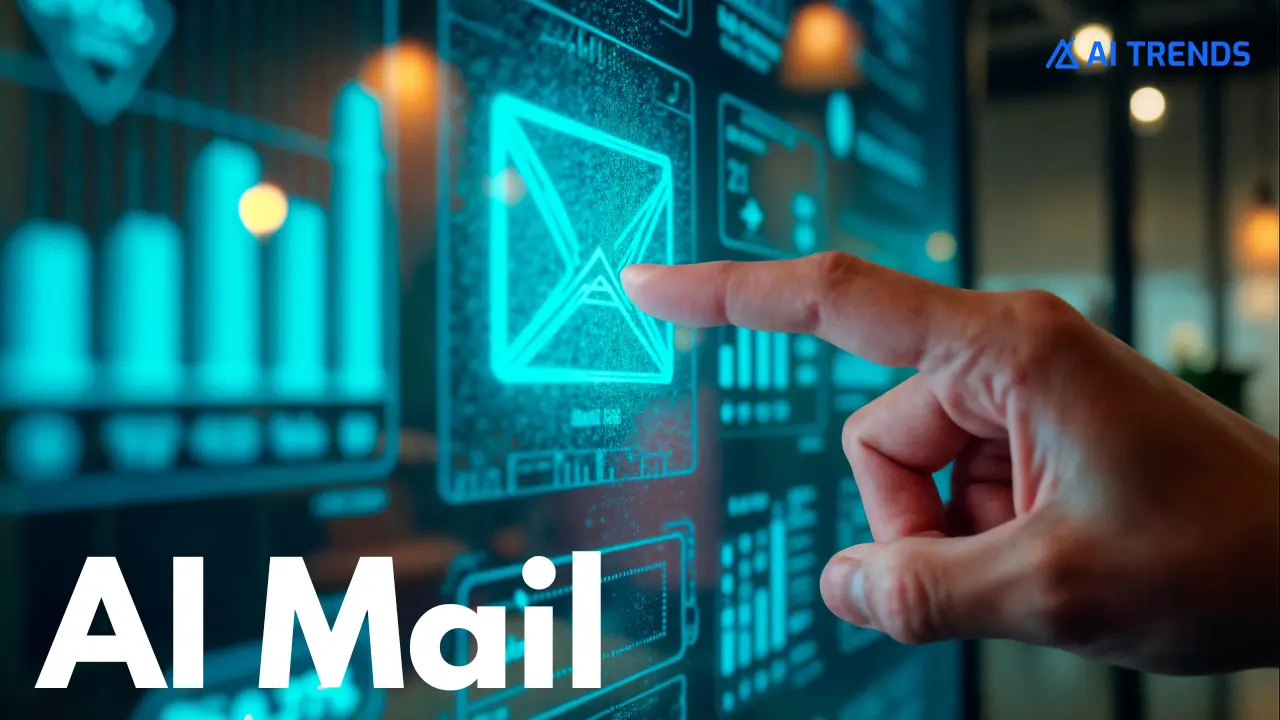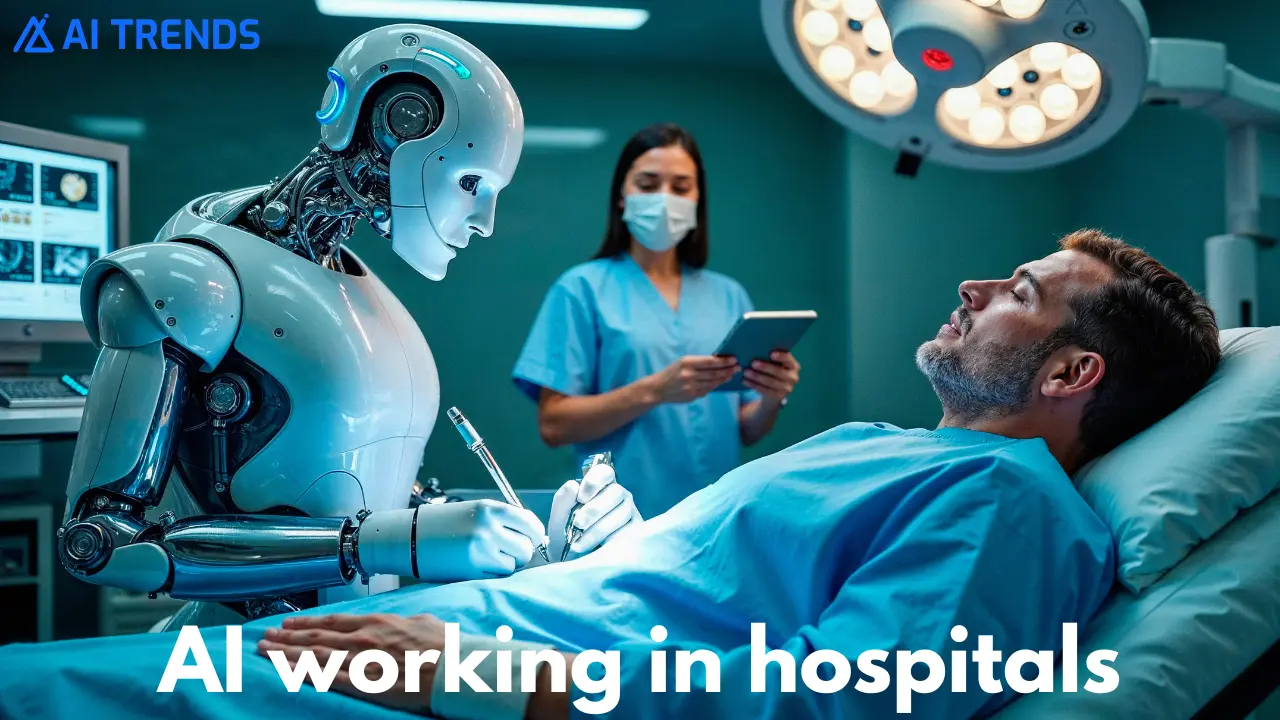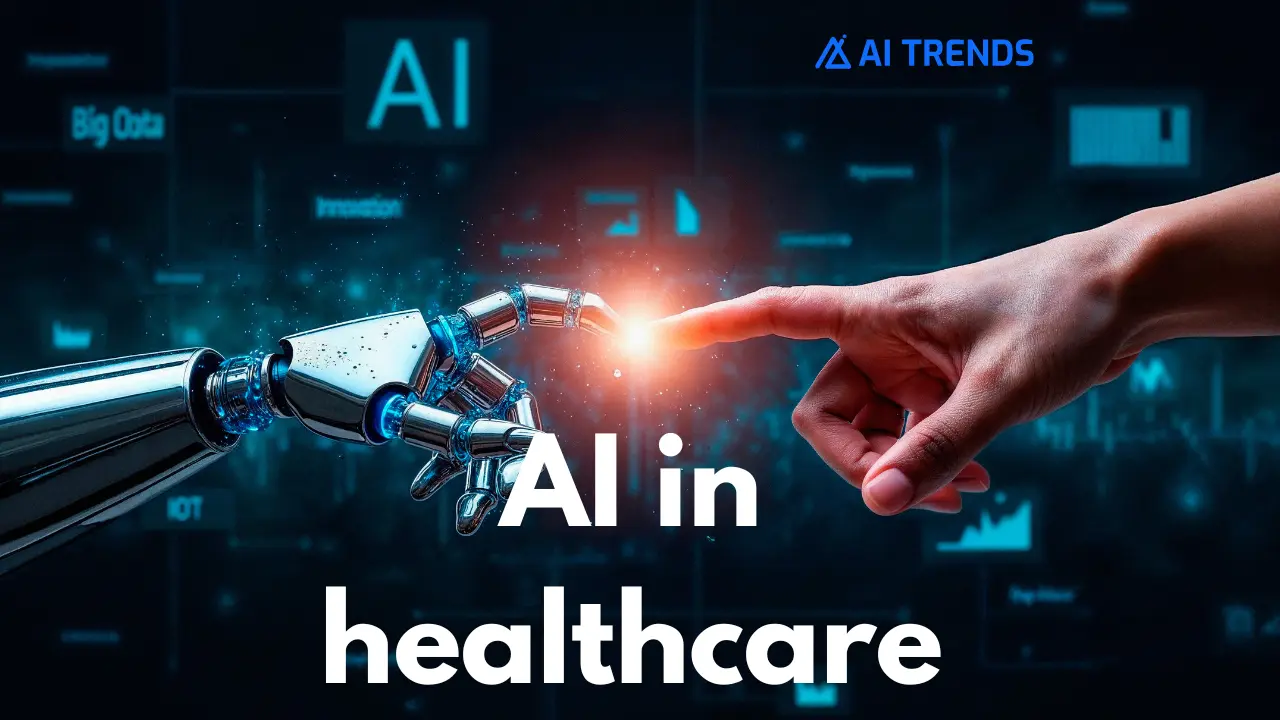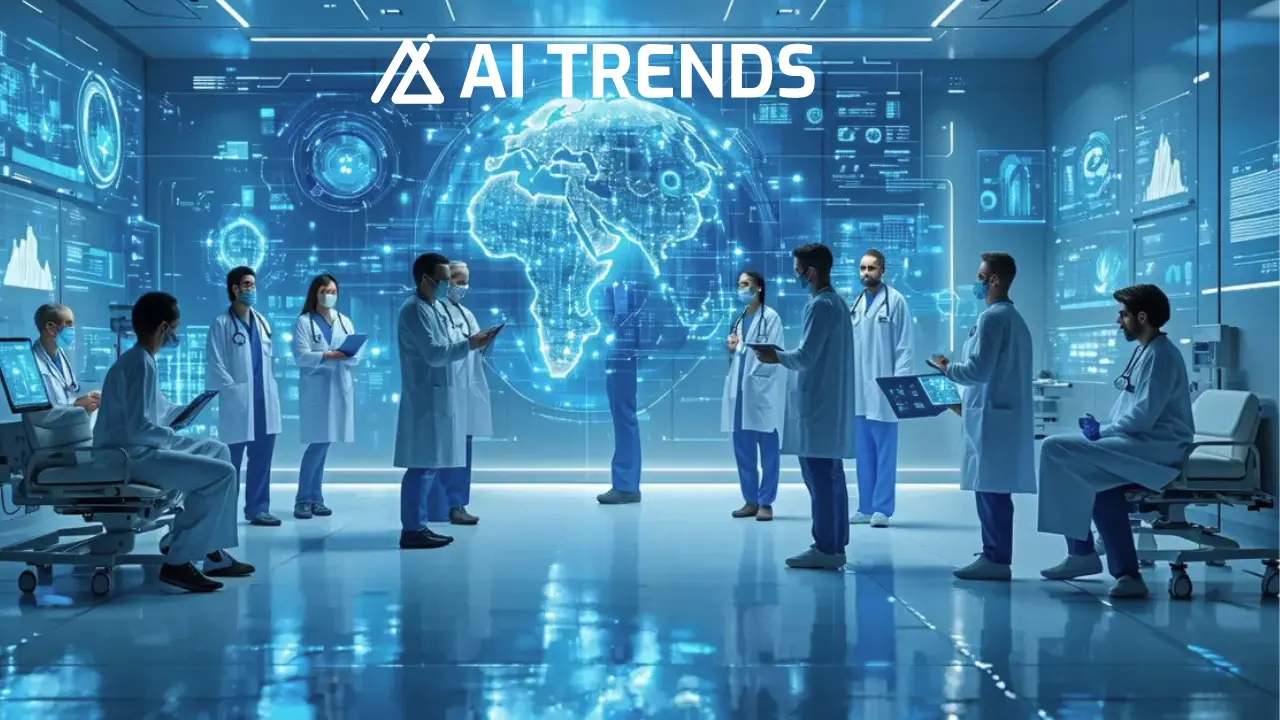Table of Contents
Whenever we hear the name of AI, artificial intelligence. So immediately, the movie’s robots or machines come to mind. Who is more intelligent than humans? But have you ever wondered what will happen when this AI is admitted to hospitals? Chile, I’ll take you on a trip. Future hospitals where AI will also be working with doctors and nurses. And yes, don’t worry, these machines will not stand with a knife on your head but will help save your life.
What is AI?
First of all, understand what AI is. AI Artificial Intelligence has to brainstorm computers and machines. From which they can learn and make decisions. Just like humans, it is made up of brain codes and data. Now you may be wondering what this is doing in the health field? That’s all the knowing.
How did the health and AI mail?

Healthcare, the health sector has always been a serious matter. A small mistake here can also prove to be fatal. That is why when the AI entered the field, everyone’s eyes fell on it. The feature of AI is this. It can read millions of patients’ data in a few seconds. It can remove the patterns. And the prediction can be made which disease may cause the patient. They also appear before the symptoms! Skin diagnosis of diseases through AI. Let’s now talk about some such diseases. In which AI is showing perfection.
AI is making the hospital system better
AI is not just making the entire hospital system smart in treating diseases.
1. Bed management
AI predicts when and how many patients can come. And allocates beds in advance.
2. Staff scheduling
It sees how many doctors or nurses are needed at what time. And makes a schedule based on that.
3. Supply chain management
- Medicines. Surgical equipment and vaccines are all stocked and ordered through AI.
- That is the hospital works like a smart factory.
- How can patients trust in AI increase?
- No matter how powerful AI is, if the patient does not trust it, it is of no use.
- That is why it is important to.
- Explain AI to patients in simple language.
- Guarantee the security of their data.
- A human doctor always makes the final decision.
- In this way patients will see AI as a helper and not as
AI in Healthcare – Keyword Table
| Keyword | Search Intent | Use in Blog Section | Search Volume (Est.) |
|---|---|---|---|
| AI in Healthcare | Informational | Blog title, intro, conclusion | High |
| Artificial Intelligence in Medicine | Informational | Explanation of AI applications | Medium |
| AI in Medical Diagnosis | Informational | Section on diagnostics and predictions | Medium |
| AI Healthcare Tools | Commercial/Informational | Tools and software section | Low to Medium |
| Benefits of AI in Healthcare | Informational | Advantages and positive impact | Medium |
| AI in Hospitals | Informational | Hospital case studies or real-life use | Low |
| Future of AI in Healthcare | Informational | Final thoughts or future trends | Medium |
| AI and Patient Care | Informational | Section about AI improving patient support | Low to Medium |
| AI in Surgery | Informational | Subsection on robotics and precision | Low |
| Challenges of AI in Healthcare | Informational | Section about risks, ethics, and limits | Medium |
For Example:
- Wearable Devices: Which monitor heart rate.
- blood sugar or walking speed.
- immediately alerts the ambulance and relatives.
- take medicine, drink water or exercise.
1. Cancer’s skin identification
AI algorithm image scans such as MRI, CT SCAN analysis .And they also catch small marks. Which can be missed by doctors eyes. Time is very important in a disease like cancer. And AI helps diagnose on time.
2. Heart diseases
AI analyzes the patient’s heartbeat and blood pressure and ECG data. And the risk signals already give. This is exactly as if your car engine gives a warning before it is damaged.
3. Mental health
AI is creating applications that can guess from human accents and habits. That he suffers from depression or mental stress. That is AI is now beginning to understand your mood. please accept this option
AI will replace the doctor?
Now the biggest question arises here. Will AI relieve doctors? No! AI is not a doctor’s alternative. Rather, it is an assistant. It does that things. What a person takes a lot of time.
For example:
- Analysis of reports in a few seconds
- Reading and connecting the patient’s history
- Predictions of medicinal effects and side effects
- Doctors have just got a superpower. Which they can work more fast and fast.
How is AI working in hospitals?

AI is no longer limited to labs. It is also working in hospitals.
1. Robot nurse
in some countries AI nurses are giving medicines to patients. Their fever is checking. And answering questions.
2. Virtual Assistants
Like you talk to Siri or Google Assistant. In the same way, patients take information by talking to AI assistant. Like when the medicine is linen or when is the next appointment.
3. Automatic record management
AI Patients reports and history automatically manage. So that doctors get everything on time and right.
- Yes Robotic Surgery has now become reality.
- Here the robot operates very gently and precision at the doctor’s gesture.
- The benefits of this are.Less blood flows
- The wounds are fine quickly
- The patient can go home soon
the real control is still in the hands of a human being. The robot does not judge by itself.
- AI and Corona an exam
- AI helped greatly when the Corona virus came.
- Monitor the virus spread
- Helped in vaccine research
- Made the tracking of patients
That is AI not only caught the disease but also warned before spreading.
- Pakistan and AI in Healthcare read more
Now the question is, what is happening in our country
AI’s challenges are also
Where there are benefits there are some concerns.
1. Privacy
The patient’s data is available to AI. And if it goes into the wrong hands may be a loss.
2. Trust
Some people do not trust AI they just want to treat a human doctor.
3. Expensive technology
- Apply AI systems not easy. They are expensive and in a country like Pakistan it can be a barrier. A glimpse of the future.
- in the coming years we will see these forms of AI. Personal AI doctors have an app for each person who keeps an eye on his health
- AI-Based Ambulances: Self-determining the path itself. And avoid traffic to the hospital in a timely manner.
- AI Diagnostic Kit that can diagnose the disease at home That is, the world of health is go
General Questions
1. What is AI in healthcare?
AI in healthcare refers to the use of artificial intelligence technologies—like machine learning, natural language processing, and robotics—to improve medical diagnosis, treatment, and patient care.
2. How is AI currently used in healthcare?
Common uses include:
Medical imaging and diagnostics (e.g., detecting tumors in X-rays)
Predictive analytics (e.g., predicting patient readmissions)
Virtual health assistants and chatbots
Drug discovery and development
Robotic surgery
Administrative automation (e.g., billing, scheduling)
3. What are the benefits of using AI in healthcare?
Faster and more accurate diagnoses
Personalized treatment plans
Reduced human error
Lower healthcare costs
Improved patient outcomes and operational efficiency
4. Can AI diagnose diseases better than doctors?
In some narrow tasks (e.g., image analysis), AI can match or exceed human performance. However, AI is not a replacement for doctors—it’s a support tool to assist medical professionals.
5. How does AI help in drug development?
AI can rapidly analyze large datasets to identify potential drug candidates, predict interactions, and optimize clinical trials—significantly reducing the time and cost of drug development.
Conclusion: The Future of AI in Healthcare
The future of AI in healthcare is bright and promising. This technology is not only diagnosing diseases early. It is also recommending specific treatments for each patient. Although there are challenges like data privacy and ethical aspects. But the benefits far outweigh them. As AI becomes more intelligent. By the way treatment is becoming faster more accurate and accessible to everyone. In other words, the future of AI in healthcare is no longer a dream .but a reality.







